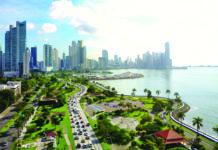
Turkey’s recent earthquakes have led to nightmare images of collapsed buildings and bodies, some living and some not, pulled from under the rubble. Rescue and aid workers from around the world, including Israel, have been at work in the destroyed cities of western Turkey, pulling out survivors and treating, feeding and clothing them as the wintry weather continues in the region.
A few aid groups have been able to travel to northern Syria as well, to contend with the devastation there.
All in all, about 37,000 people are now reported to have been killed, with over 31,000 in Turkey and more than 5,000 in Syria. The number of dead will likely keep rising as crews carefully dismantle the mounds of brick and steel left in the wake of the tremors. But there are still people being found alive.
Whole families were pulled from the rubble after spending over 150 hours buried under the remains of high-rises. On Monday, a 13-year-old who had been trapped for 182 hours in Hatay Province was rescued, as were several other children in other areas stricken by the quakes.
The devastation is also having a political effect. Turkish President Recep Tayyip Erdogan has come under fire for failing to enforce building codes, while the government has detained over 130 building contractors and others in the construction industry, accusing them of corruption and failure to follow earthquake-safety rules. Beyond the horrifying human toll that the earthquakes have exacted, they may also have political aftershocks, with Erdogan facing tough elections this year that have likely only gotten tougher because of his apparent failures.
Protests against the government were one of the reasons cited by United Hatzalah for bringing its volunteers back to Israel earlier than planned; terrorist threats and the proximity to the Syrian border were other reasons. Rescuers from the IDF were able to remain, however.
For Israel, the disaster has presented it with an opportunity to show support to a country with which it has only recently renewed friendly relations. It has also been a time to examine Israel’s own earthquake preparedness. With buildings in Tel Aviv and other Israeli cities shaking after the Turkish quakes, the tragedies happening to the north are too close for comfort.
Where are you right now?
We are currently in Kahramanmaraş, in the northeastern part of Turkey. This is one of the epicenters of the earthquake, and we are very close to one of the cities that was hit the hardest.
When did you arrive there?
We arrived late Monday night. Since we didn’t know the condition of the nearby airport, we flew to Adana, which is about 200 kilometers from here. We then hired buses and drove here. Our team consists of about 170 people, and if you include the medical team, there are about 450 people here.
There are so many people who were buried, killed and wounded. What can you accomplish with such a small contingency of soldiers and medical people?
It’s true that the devastation here is very great; it’s unimaginable. The photos that everyone is seeing don’t do justice to what is really happening here on the ground when you see it with your own eyes. And so many people are still living in buildings that are uninhabitable. The size of our contingent certainly sounds like only a drop in the sea when compared with what is going on here, but it’s important to understand that our impact here is still disproportionately high, because we can accomplish a lot through many small steps. We can take control of the area where we are, and from there we can impact a number of other areas around us. We were given this territory by the people who are in charge of the response, and we are sure that we can accomplish a lot here.
In other words, it might only be a drop in the sea, but each drop has the ability to make an important impact.
Exactly. Every single individual who comes here to help is significant and makes a difference. We are working side by side with the Turkish authorities; we are working in the tunnels that are being dug to reach those who are trapped, and our rescue teams are working directly with the Turkish rescue teams.
The Turks are for the most part Muslims, while you are Jewish soldiers and doctors. How is that working out?
To read more, subscribe to Ami

























